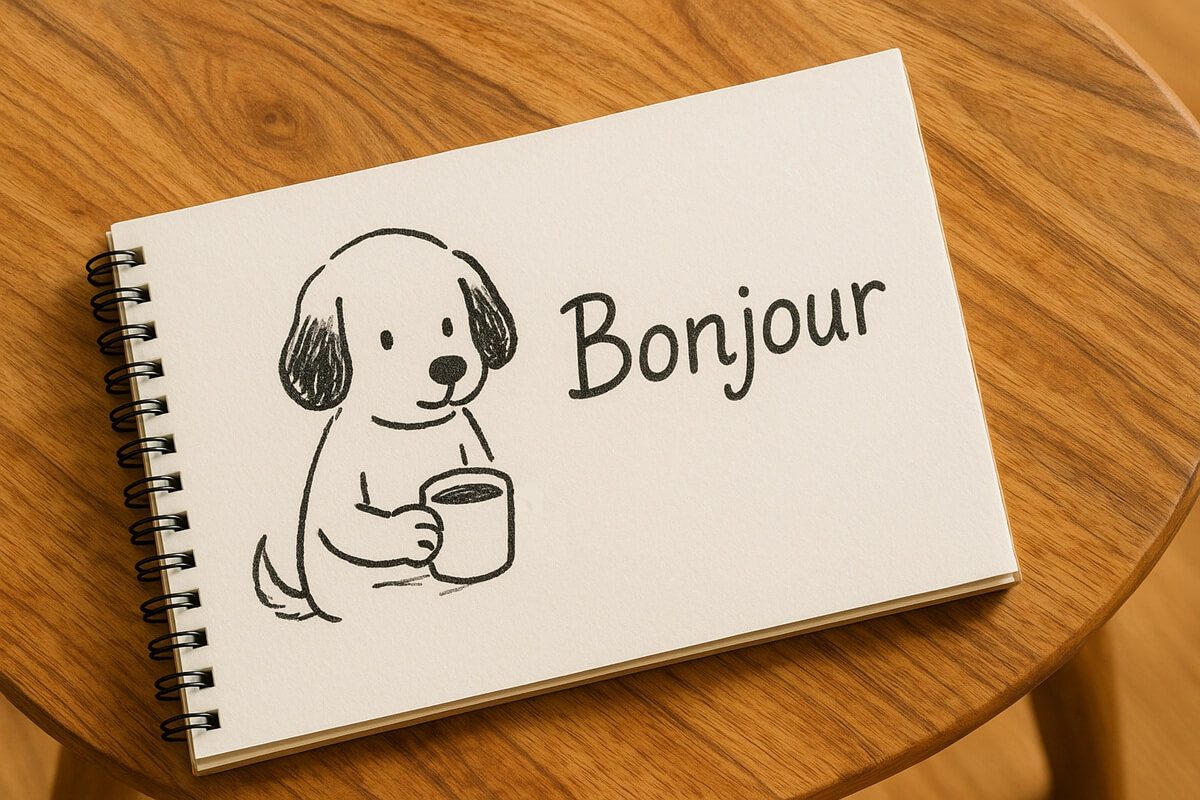
Whether you’re off to Paris, chatting with a Francophone friend, or just want to sound cool at your local café, learning how to say “hello” in French is a great place to start. But here’s the thing: French greetings don’t work the same in every situation. The way you say hi depends on the time of day, how formal you want to be, and who you’re speaking to.
Let’s break it down. Here are 10 ways to greet someone in French — from classic staples to more playful alternatives.
1. Bonjour – Hello / Good morning
This is the go-to French greeting. It literally means “good day” and works in most situations — whether formal or casual, in the morning or early afternoon. If you’re unsure what to say, bonjour is always a safe bet.
When to use it:
Any time before evening, especially in formal or professional settings.
2. Salut – Hi
Short, friendly, and informal. Salut is like saying “hi” to someone you know well — a friend, classmate, or family member.
When to use it:
In relaxed, familiar settings where everyone knows each other.
3. Coucou – Hey there!
Think of this as a cheerful “hey hey!” or “hiya!” Used mostly among close friends, romantic partners, or with kids. It’s super casual and very warm.
When to use it:
With people you’re very close to. Avoid in formal situations.
4. Bonsoir – Good evening
Once the afternoon shifts into evening, switch from bonjour to bonsoir. It’s the appropriate “hello” as the day winds down.
When to use it:
When greeting someone in the evening, in person.
5. Allô – Hello (on the phone)
Allô is strictly for telephone use. You’ll never hear someone say this face-to-face.
When to use it:
When answering or greeting someone on the phone.
6. Enchanté(e) – Nice to meet you
Literally meaning “enchanted,” this is the classic way to say “nice to meet you” when meeting someone for the first time. Add bonjour or salut for a complete introduction.
When to use it:
During first-time introductions.
1 While “Enchanté(e)” is still correct and polite, it can sound a bit formal or old-fashioned in casual conversations — especially among younger French speakers. A simple “Bonjour, je suis [your name]” often feels more natural in modern French.
7. Ça va ? – How’s it going?
While it’s technically a question, ça va ? functions like a casual greeting — sort of like “You good?” or “How’s it going?”
When to use it:
In informal conversations with friends or acquaintances.
8. Comment ça va ? – How are you?
This is a slightly more complete and polite version of ça va. Still friendly, but a bit more neutral and appropriate in a wider range of settings.
When to use it:
Casual to semi-formal situations.
9. Salut, toi – Hey, you
A flirty or affectionate greeting. You might say this to a partner or close friend when you want to sound warm or playful.
When to use it:
To be cute, affectionate, or familiar — but only with someone you know well.
10. Yo / Wesh – Yo / Sup
Borrowed from street slang and youth culture, yo and wesh are super casual. Wesh is more common in urban or multicultural French settings.
When to use it:
Among teenagers or in very informal, urban settings.
2 “Wesh” originated from North African Arabic (shortened from “wesh rak” – “how are you?” in Algerian Arabic). It’s associated with banlieue (suburban/urban) culture and may carry strong cultural or social tones. Use it with care, especially if you’re not part of that community or setting.
Quick Tips for French Greetings
- Always say bonjour when entering a shop, office, or restaurant — it’s polite and expected.
- Avoid salut or coucou in formal situations.
- Match your tone to the person and the setting.
Wrap-Up
There you have it — 10 ways to say “hi” in French, each with its own personality. From the elegant bonjour to the playful coucou, picking the right greeting helps you sound natural, polite, and confident in any situation.
Now that you’ve got French greetings down, why not take it a step further and start a simple conversation? Stay curious, keep practicing, and you’ll improve every day.



